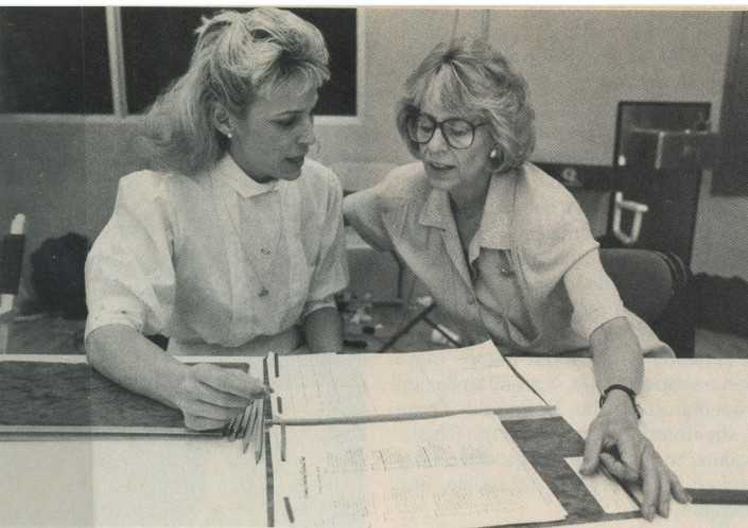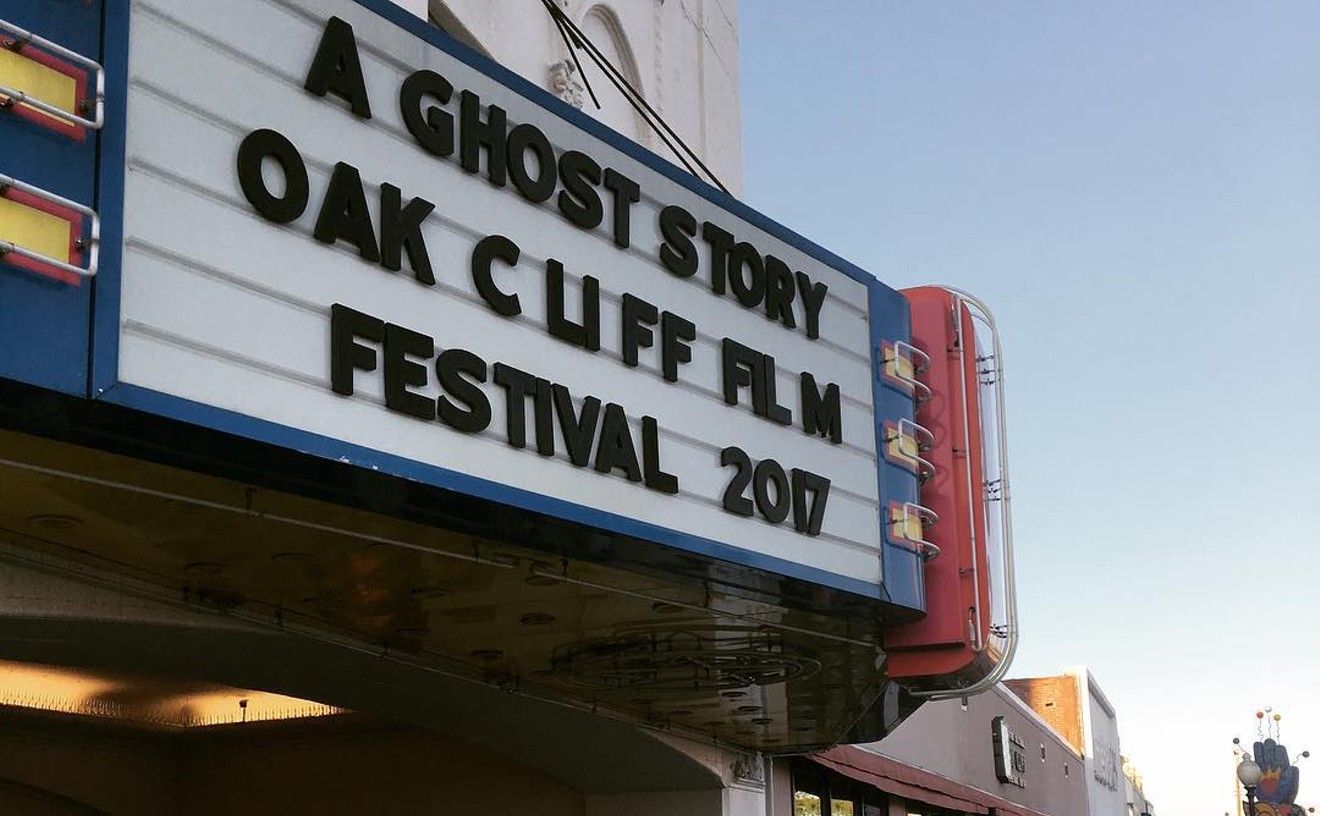When Dana Adam Shapiro approached Suzanne Mitchell in 2015 about creating a documentary about the Dallas Cowboys Cheerleaders, Mitchell advised him to hurry.
“She said, ‘If you're serious about this, I would get down here pretty quick because I'm dying,’” Shapiro remembers.
Daughters of the Sexual Revolution: The Untold Story of the Dallas Cowboys Cheerleaders, a documentary by Shapiro, explores Mitchell’s time as director of the cheerleading squad and how the rise of the cheerleaders took place at the same time — and in the same city — as Roe v. Wade.
“I didn't know anything about where this all came from,” Shapiro says. “How did showgirls wind up on the sidelines of sporting events? It started out as sort of an investigation of that concept, and, of course, all roads lead to the Dallas Cowboys Cheerleaders, and they were sort of the most famous squad. And it all started there in 1972, Dallas.
"And then I find out this very same year, Roe v. Wade was going on in the very same city. It seemed like, ‘Wow, maybe this could become a deeper story.’”
The documentary explores the squad in the ’70s after cheerleader Gwenda Swearingen looked in the camera during a televised game and winked. After that, America became obsessed with the cheerleaders. Soon, they were making appearances on The Love Boat, starring in made-for-TV movies and touring overseas with the USO.
Mitchell was behind it all. When callers began flooding then-Cowboys owner Tex Schramm with questions about the cheerleaders, he enlisted Mitchell, his secretary at the time, to handle the squad.
Mitchell was more than just the director. Former cheerleaders have said she was like their mother, tough and someone they respected. When Shapiro began contacting former cheerleaders to interview for this documentary, they wouldn’t agree until Shapiro had Mitchell’s permission.
“I was surprised by that because it's 40 years later,” Shapiro says. “I was like, ‘Well, no, I haven't spoken to Suzanne yet.’ They wouldn't agree to be in the movie unless Suzanne gave the go-ahead.”
When Mitchell agreed to the documentary, Shapiro immediately began interviewing her. She died of pancreatic cancer Sept. 27, 2016.
“She took a turn for the worse, and the movie just wasn't even close to done,” Shapiro says. “These [documentaries] take a long time. And we cut together a 12-minute thing of a lot of the women speaking about her. She was just so moved ... just to hear that at the end of her life.”

A list of Suzanne Mitchell's rules for the Dallas Cowboys Cheerleaders.
courtesy Shannon Baker Werthmann
Those were just some of the rules Mitchell had in place for her cheerleaders. She was strict and intimidating and fearless.
Her rules were not up for negotiation, which became clear when the women were on set for The Love Boat. Mitchell told the production team there would be no camera angles shooting up. When she saw a camera positioned that way, she led the women offstage and said they were done shooting.
Shannon Baker Werthmann, who was a cheerleader from 1976-80, was on The Love Boat set that day.
“We were shooed off very quickly because she didn’t want us to bear the brunt,” Werthmann says on a phone call from her Dallas home. “Mouths were hung open, and we were all wide-eyed. But talk about walking your talk. It was pretty amazing. She was always watching out for us.”"Talk about walking your talk. It was pretty amazing. [Suzanne Mitchell] was always watching out for us.” – former Cowboys cheerleader Shannon Baker Werthmann
tweet this
Werthmann says Mitchell always wanted to protect the corporate identity and elevate the women.
When Jerry Jones bought the Dallas Cowboys in 1989 and threatened the status quo, Mitchell and 14 cheerleaders quit.
Werthmann, a choreographer for the cheerleaders at the time, says she lasted only one year after Jones acquired the team.
In the documentary, Mitchell explains that Jones wanted to loosen up some of the rules for the cheerleaders — change their outfits and allow them to date players, and if Jones wanted, he and others could watch practices.
“It just was not going to work out with the new regime coming in,” Werthmann says. “I so admire Tex Schramm. He never took advantage of us because he had a whole lot of respect for Suzanne and us and never crossed that line.”
Although Werthmann was a cheerleader during the height of the sexual revolution and feminists often looked down on the cheerleaders, she says she never felt exploited. When the cheerleaders performed at Fresno State University's halftime show to raise money for the women's athletic department, the women athletes protested, yelling, “Hearts and minds, not bumps and grinds."
"When Suzanne was in charge, she made sure that we were protected, that we weren’t put in any kind of strange place with strange people," Werthmann says. "You know, not purposely. You come across those people that are strange in that way, but as far as her assigning us places to go, things to do, she always checked them out thoroughly — big mama protector in that way. So I never felt exploited."
The cheerleaders’ job was to entertain Cowboys fans every home game. During Christmas, their job was to entertain and visit U.S. troops overseas on USO tours.
Toni Washington, a cheerleader from 1980-84, was the first to serve as Mitchell’s tour assistant during the squad’s trips overseas.
She says that was the highlight of her time as a cheerleader, and in the documentary, Mitchell tells stories of their time on tours.
“These were ambassadors, these were women to look up to,” Shapiro says. “They served their country in the way that they could at the time. Now, of course, they get to be soldiers. At the time, they couldn’t. … To hear them to say, ‘This was my path towards service. It was through cheerleading that I was able to serve my country. The most important part of my tenure as a cheerleader was the USO tours or going to the children's hospitals or the VA hospitals.’”
Although the cheerleaders sometimes faced dangerous circumstances, Washington says she never doubted going back year after year.
“One time I was in the helicopter, and I was Suzanne’s assistant and … the fog was really thick and we couldn’t see,” Washington tells us on a phone call from her home in Frisco. “So the guy goes, ‘You know what, this is too much. We’re gonna go back.’ And we came up and we were headed straight into a mountain, and we had just turned around.
“I mean, you can die driving on a highway or whatever. I loved it.”

The Dallas Cowboys Cheerleaders viewed Suzanne Mitchell as a mother-figure.
courtesy Daughters of the Sexual Revolution: The Untold Story of the Dallas Cowboys Cheerleaders
Cheerleader Dana Presley Kilmer knows this well."I just figured out I would make a phone call to some people that I knew, and we would be able to take him out in the desert and tell him not to do that anymore.” – Suzanne Mitchell
tweet this
In the documentary, Kilmer explains that she went to Mitchell and told her she needed a divorce from her husband, who was cheating on her. Mitchell told her the Cowboys would help her in the divorce and found Kilmer a roommate in the squad.
Then Mitchell took another step toward helping Kilmer.
“I had to do some bad stuff to her husband at the time,” Mitchell says in the documentary, looking down, playing with her ear. “She came in with bruises once too often. And it’s nice when you have contacts. We can get him taken care of. I just figured out I would make a phone call to some people that I knew, and we would be able to take him out in the desert and tell him not to do that anymore.”
She grins.
Angelika Film Film Center Dallas will show Daughters of the Sexual Revolution: The Untold Story of the Dallas Cowboys Cheerleaders at 7:30 p.m. Sunday as part of the USA Film Festival.











